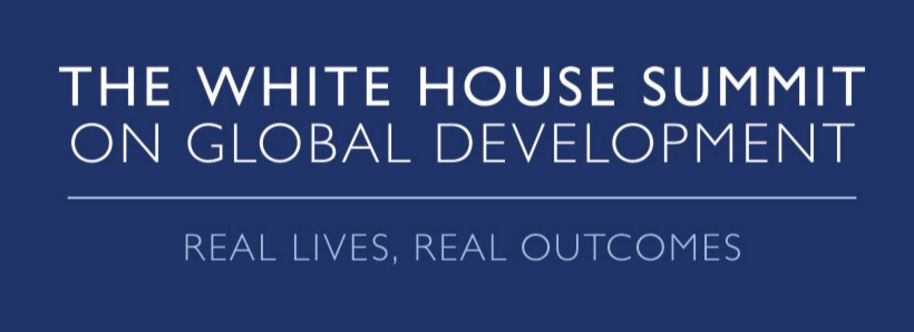Global Health, Governance Highlighted at White House Summit
 Recently, President Obama hosted the White House Summit on Global Development to review progress and chart new ways forward in six important areas: global health, governance, food security, energy, partnership, and youth. Gayle Smith, USAID Administrator joined President Obama and Ambassador Susan Rice, National Security Advisor, and senior government officials and representatives from humanitarian, academic and private organizations at the Ronald Reagan Building on July 20th.
Recently, President Obama hosted the White House Summit on Global Development to review progress and chart new ways forward in six important areas: global health, governance, food security, energy, partnership, and youth. Gayle Smith, USAID Administrator joined President Obama and Ambassador Susan Rice, National Security Advisor, and senior government officials and representatives from humanitarian, academic and private organizations at the Ronald Reagan Building on July 20th.
Bob Fryatt, HFG’s Project Director, attended the summit, and shared the following observations from the high-level panel discussions, including those on Transforming Global Health through Evidence and Partnerships and Transparency, Accountability, and Open Government.
The panel on global health stressed the continuing bipartisan support for the global health agenda and how health has been a model for showing how evidence matters. There was a significant amount of discussion on the Ebola crisis, including the need for governments to build trust. The conversation around ‘Partnering to finance the sustainable development goals’ emphasized putting countries in the driver’s seat, domestic resource mobilization, supporting local entrepreneurs, and encouraging a ‘new era’ of public-private partnerships that involves pragmatic coalitions. Innovative finance that goes to scale remains important for global health.
Under President Obama, U.S. investments in global health have tripled. “Let’s keep advancing global health and keep reforming health systems, empowering local communities, investing in new treatments and prevention,” said the President as he enumerated HIV and AIDS achievements and called for an AIDS free generation. He also touched on all the main priorities for the government, including the global health security agenda, good governance and accountability, food security and nutrition, and empowering young people.
The President’s speech at the end of the day again emphasized the importance of bipartisan support for ‘smart development’ with many well-crafted arguments on why this support must remain a priority for future administrations given that ‘globalization is leaving too many people behind.’ The speech highlights many historic achievements, including those in the areas of HIV and AIDS and malaria.
President Obama shared meaningful messages, such as this one: “Our belief that in the 21st century, no child should go to bed hungry, and no child should die from a mosquito bite, and no one should be denied opportunity because of where they’re born or what gender or religion they are, or the color of their skin or who they love. All of us are born equal and we’re all connected.”
President Obama’s full speech:



